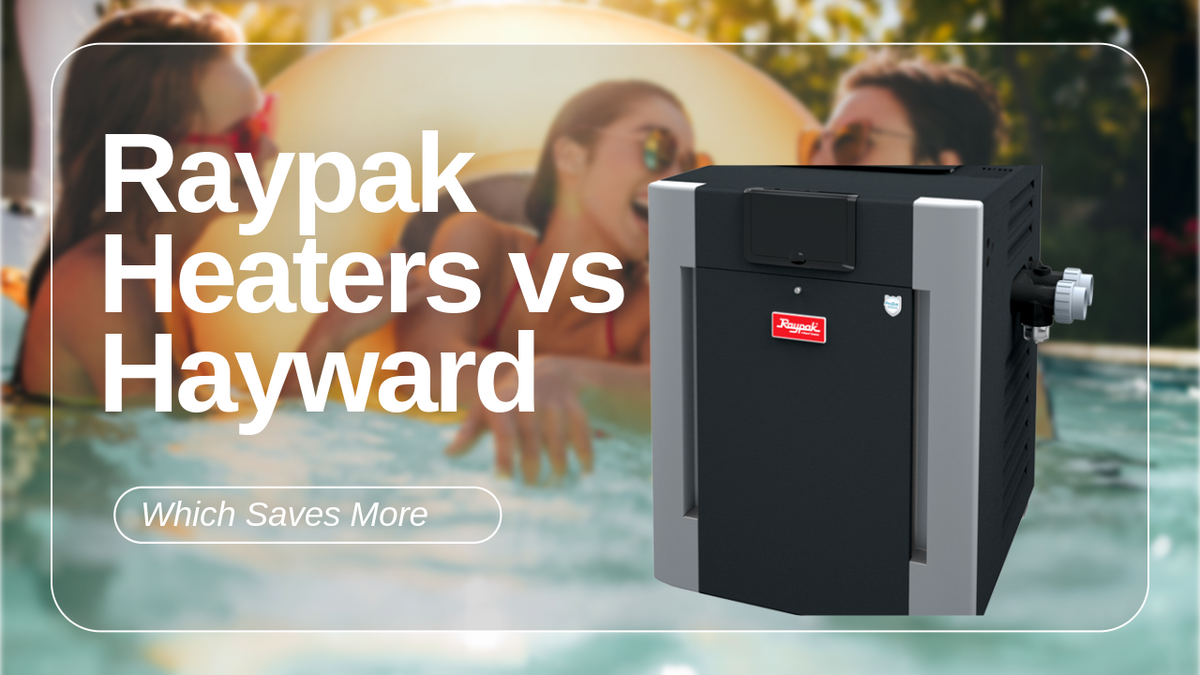
Raypak Digital Pool Heater vs Hayward: Which Saves More On Energy Bills
|
|
Time to read 2 min
|
|
Time to read 2 min
If you're shopping for a pool heater, you're probably asking the same question many homeowners do: which brand gives me the best performance without wrecking my energy bill — Raypak or Hayward?
Both companies offer high-efficiency gas and electric heaters, but their models differ in cost, efficiency, installation, and performance. In this guide, we’ll break it down based on real product specs, energy usage, and common pool types — so you can make the best choice for your setup.
While pricing can vary by dealer and model, here’s a general idea based on popular heaters:
| Brand |
Mid-Range Model (250K–266K BTU) |
High-End Model (400K BTU) |
Typical Installation Range |
| Raypak |
$2,799–$3,299 |
$4,337 |
$500–$2,000 |
| Hayward |
$2,999–$3,499 |
$4,550 |
$500–$2,000 |
Raypak heaters tend to cost slightly less up front, typically by $200–$300 for equivalent models. Installation costs are similar, though Raypak’s simpler wiring setup may save a bit on labor.
Hayward edges ahead here, offering slightly better fuel conversion rates, which can save $50–$100+ per year in heating costs depending on your usage.
If you're heating a pool daily, Hayward’s heat pumps will cost far less to run than Raypak’s direct electric heaters — especially in mild climates.
For saltwater pools, Hayward wins by including salt-ready materials out of the box.
If you prefer to do your own troubleshooting or want quick maintenance calls, Raypak is easier to work with.
| Pool Type |
Best Brand |
Why |
| Small spas / hot tubs |
Raypak |
Heats small volumes fast. Digital models maintain tight temperature control. |
| Large in-ground pools |
Hayward |
Better for high volumes, large installs, and higher elevations (forced draft design). |
| Saltwater pools |
Hayward |
Comes salt-ready with cupro-nickel exchangers. |
Here’s the short version:
Hayward heaters are energy-efficient and better suited for large or saltwater pools, offering long-term value and reliability.
Raypak heaters shine for all setups, commercial and residential and ease of maintenance, and energy-efficient, especially when every dollar counts at purchase.
Ready to Find the Right Pool Heater for Your Setup?
Need help choosing the right size? Talk to a pool heating expert — we’re here to help you find the perfect match for your pool and your budget.


